Surfaces are critical to the appearance, function, and service life of metal components. Electrochemical polishing and deburring significantly improves the properties of metal surfaces, enhancing durability and reliability of treated components
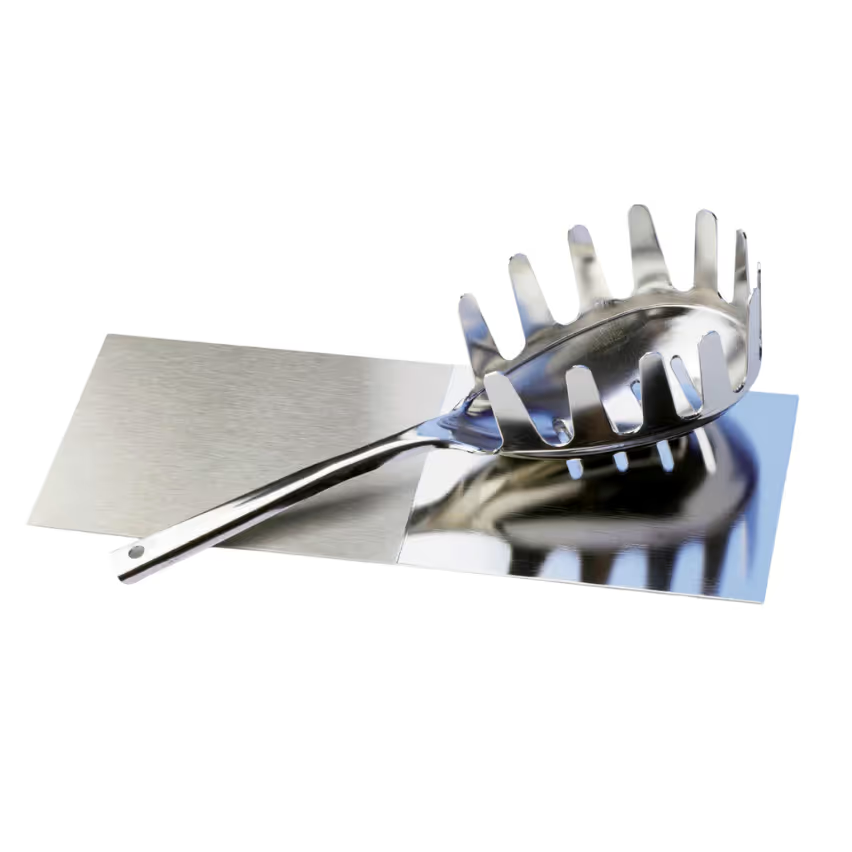
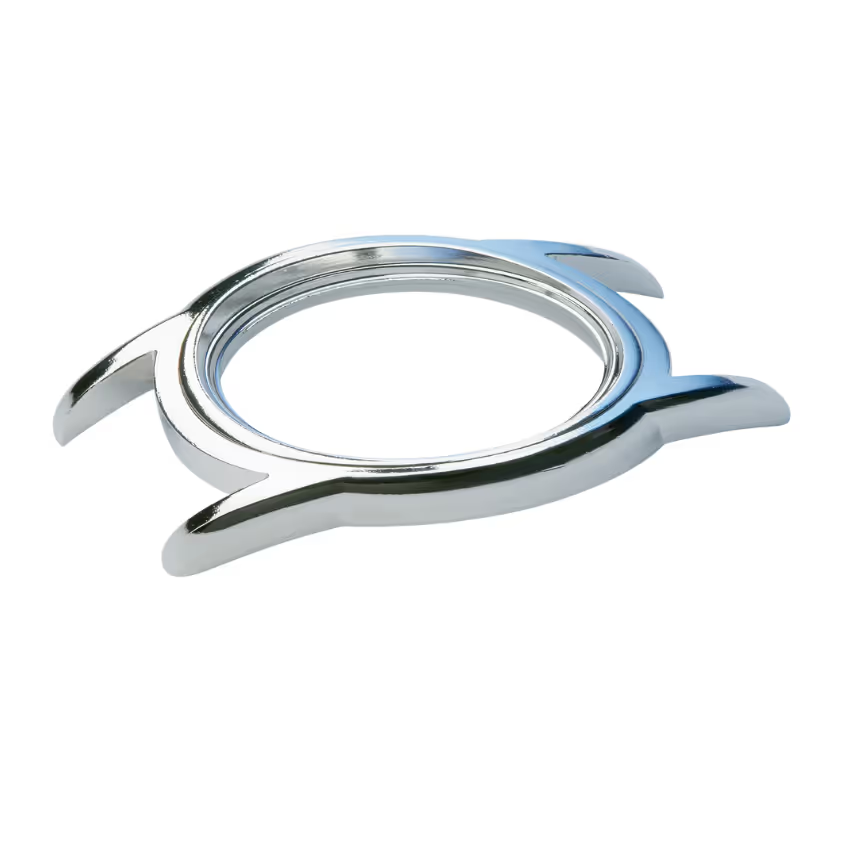
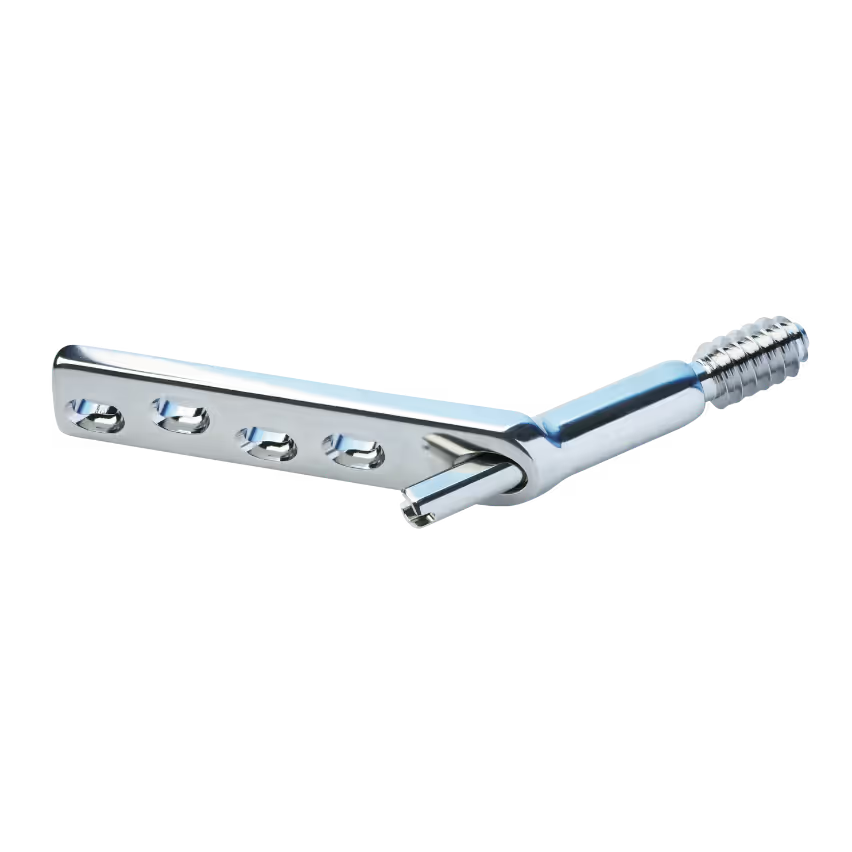
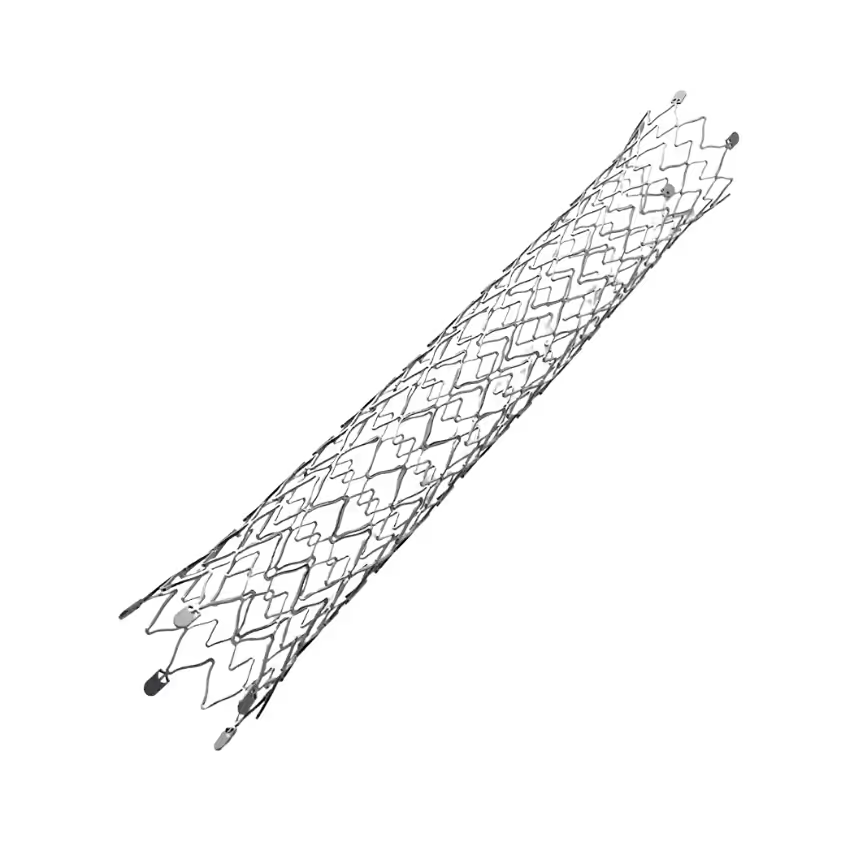
The workpiece is immersed in a material-specific electrolyte and connected to a DC Power Supply as anode. Under the influence of an applied voltage and the resulting current, metal is removed from the workpiece surface. The removal is stress-free and preferentially targets micro-roughness. The surface becomes smooth and bright at the micro-level while macro-level structures are largely preserved. Edges and corners are removed more intensively, resulting in reliable fine and micro-deburring across the entire surface area.
During mechanical processing (such as drilling, grinding, and polishing), materials are altered or damaged by force and heat, leading to cracks, stresses, and microstructural changes that reduce components service life . Electropolishing removes these damaged surface zones, allowing the material's original properties to be fully restored.
When electropolishing stainless steel, an uninterrupted chromium oxide-rich oxide layer is created on the surface, forming a passive protective film against corrosion.
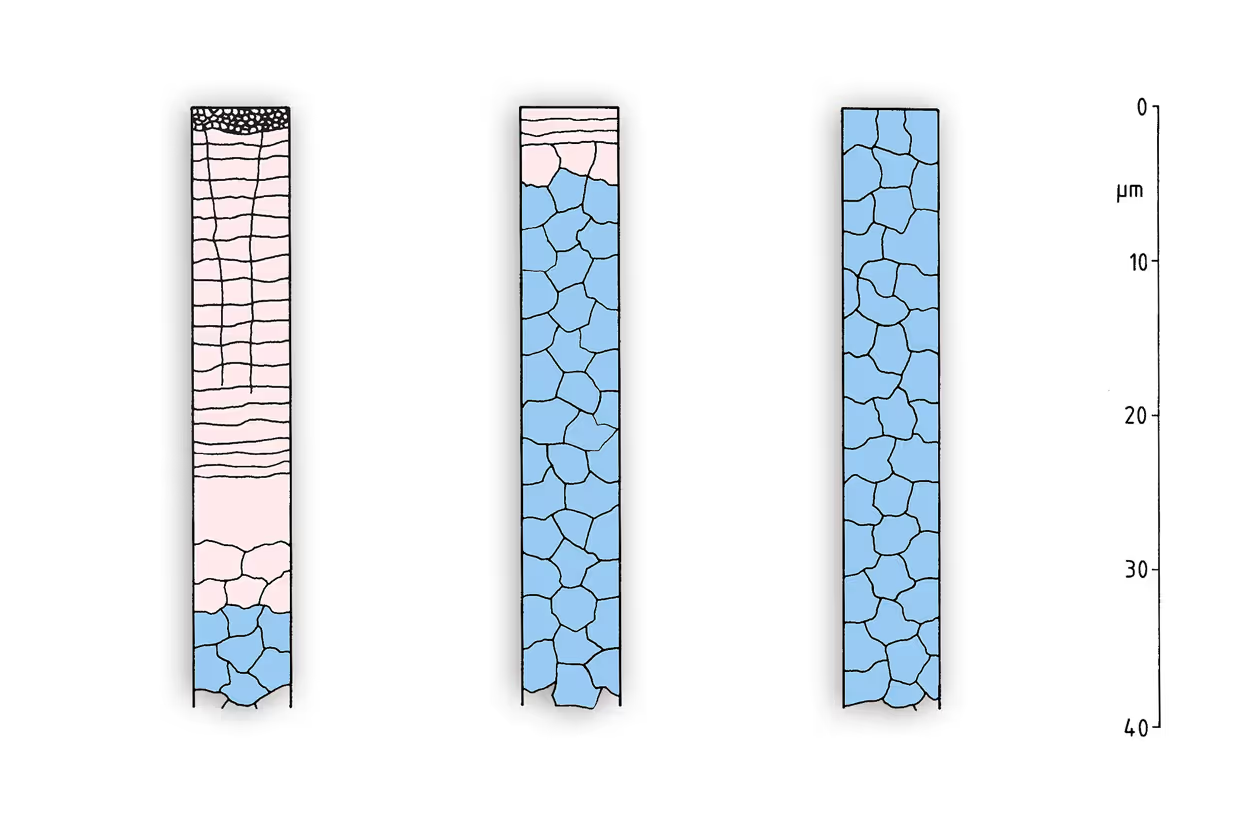
Influence of surface treatment on the depth of the mechanically modified layer:
ground (l), honed (m), electropolished (r)
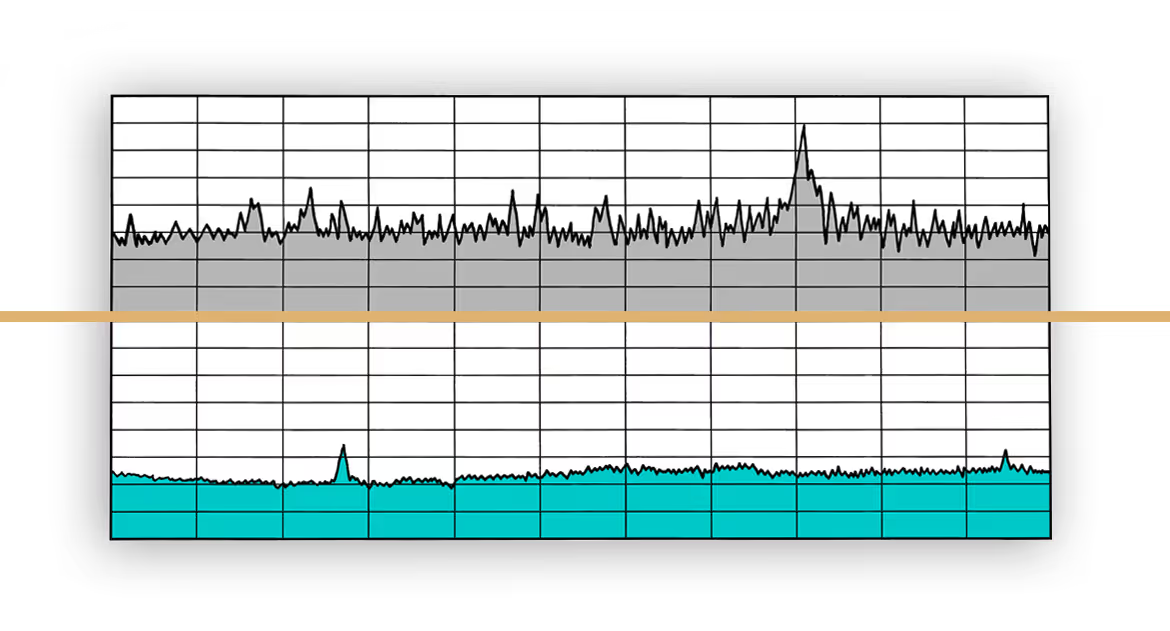
Roughness measurement report polished on a stainless steel sheet
with 180 grit (top) electropolished (bottom)
- Metallic purity & chemical passivity - resulting in high corrosion resistance
- Particle-free & smooth surfaces - ideal for cleaning, sterilization and cleanroom applications
- Quality Control - revealing material and processing defects
- Decorative - enhanced luster and uniform appearance
- Fewer stress and crack initiation sites - higher durability and service life
Electropolished surfaces are used in almost all industrial sectors — wherever cleanliness, precision and durability are crucial:
- Medical Technology (implants, instruments)
- Apparatus Engineering and Pharmacy
- Food and Chemical industries
- Watch and Precision Mechanics
- Automotive Industry
- Architektur
- Stainless Steel
- Carbon Steel
- Titanium Alloys
- Chromium-Cobalt Alloys
- Copper Alloys
- Aluminum Alloys
- Magnesium Alloys
- Other metals on request
ElpoChem provides industrially validated Electrolytes for Titanium, Titanium Alloys, Niobium, Nitinol, Tantalum and CrCo Alloys. Exposure times of approximately 2 minutes already produce surface finishes ranging from bright to specular.
Prefferential material removal at peaks and edges achieves micro-deburring while micro-topography is reduced. The result is a metallically pure, micro-smoothed surface with enhanced passivation and superior corrosion resistance.
The processes are carried out at temperatures between 20°C and 50°C and voltages of
20-30 V — ideal for consistent results and reproducible quality.
Electropolishing delivers not only technically superior surfaces, but also visually flawless ones. It combines functionality, hygiene, and aesthetics — making it essential for high-quality metal components in demanding applications.
Find the right process for your application – customised
to your industry, material and production environment.
.avif)
Processes for implants and instruments: metallically pure, passive, burr-free, and biocompatible
.avif)
Reliable finishing solutions for high-volume metal component production

Electrochemical and chemical processes for polishing, deburring and passivating of complex components
.avif)
Process solutions for functional and decorative components in locking technology.
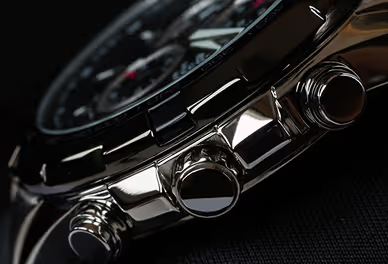
High-precision surface finishing for functional and aesthetic requirements
.avif)
Finishing Process for components in spinning and weaving technology for thread-safe smoothness